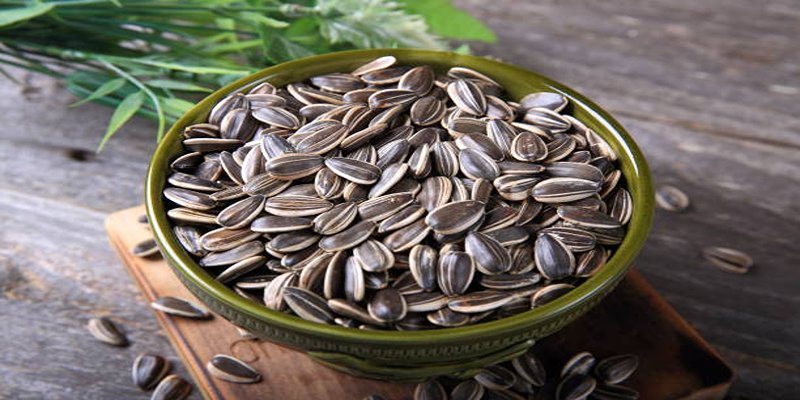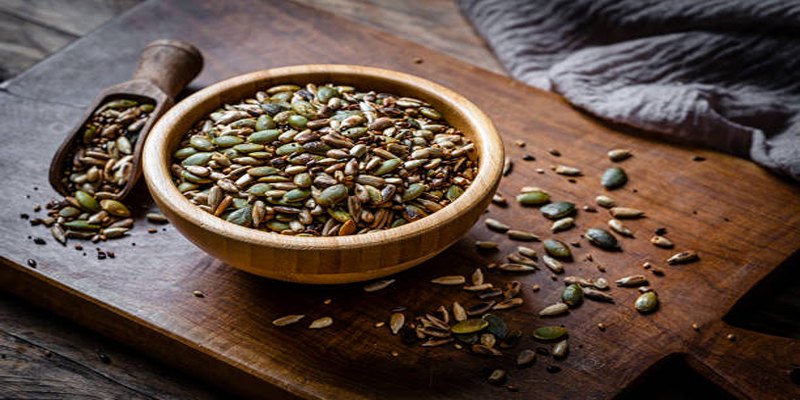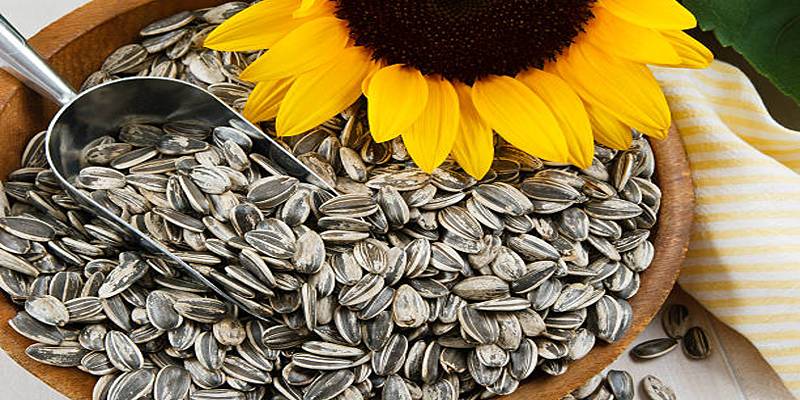Incorporating sunflower seeds into your diet can provide numerous health benefits, making them a versatile and nutritious addition to your meals. These small yet powerful seeds are rich in essential nutrients, including healthy fats, proteins, vitamins, and minerals that support overall well-being. Sunflower seeds are an excellent source of vitamin E, known for its antioxidant properties, which help protect your body from free radicals and strengthen your immune system. They also boast a significant amount of magnesium, which is beneficial for heart health and stress reduction.
High in Healthy Fats

Sunflower seeds are a fantastic source of healthy fats, specifically polyunsaturated and monounsaturated fats. These fats play a crucial role in promoting heart health by helping to lower bad cholesterol levels and reduce the risk of cardiovascular diseases. Adding sunflower seeds to your diet not only provides these beneficial fats but also supports proper cell function and enhances overall nutrient absorption. Their delightful nutty flavor and crunchy texture make them a wonderful addition to a variety of dishes, from salads to baked goods.
2. Rich in Protein
Sunflower seeds are an excellent source of plant-based protein, making them a perfect choice for vegetarians, vegans, and anyone seeking to boost their protein intake without relying heavily on animal products. Protein plays a crucial role in building and repairing tissues, producing enzymes and hormones, and maintaining healthy skin, hair, and nails. A small serving of sunflower seeds can significantly contribute to your daily protein requirements, supporting muscle growth and overall bodily function. Their versatility allows for easy incorporation into various meals or snackswhether sprinkled over yogurt, blended into a trail mix, or added to homemade energy bars.
3. Loaded with Essential Vitamins and Minerals
Sunflower seeds boast an impressive array of essential vitamins and minerals that play a crucial role in maintaining optimal health. They are particularly rich in vitamin E, which acts as a powerful antioxidant, protecting the body's cells from damage caused by free radicals. Moreover, sunflower seeds contain B vitamins such as folate, which is essential for DNA synthesis and repair, and vitamin B6, which aids in brain health and mood regulation. In terms of minerals, sunflower seeds provide an ample supply of magnesium, which is vital for bone health and energy production, as well as selenium, known for its immune-boosting properties. Including sunflower seeds in your diet ensures you receive these essential nutrients, supporting overall bodily functions and promoting a healthier lifestyle.
4. Supports Heart Health
Sunflower seeds are a heart-friendly snack that can significantly contribute to cardiovascular well-being. Their high content of healthy fats, particularly omega-6 fatty acids, aids in maintaining blood cholesterol levels, which is essential for reducing the risk of heart disease. Additionally, sunflower seeds are rich in phytosterols, compounds known to help lower LDL (bad) cholesterol. The presence of magnesium in sunflower seeds further supports heart health by promoting healthy blood pressure levels. Incorporating sunflower seeds into your diet provides a natural and tasty way to protect your heart, whether enjoyed on their own or added to your favorite dishes.
5. Aids in Digestion
Sunflower seeds offer digestive system support thanks to their high fiber content. Dietary fiber is essential for maintaining a healthy digestive tract by promoting regular bowel movements and preventing constipation. This fiber content also contributes to a feeling of fullness, which can aid in weight management by curbing overeating. Furthermore, a well-functioning digestive system supports nutrient absorption and overall health. Incorporating sunflower seeds into your meals or snacks can enhance digestive health, making them a valuable addition to a balanced diet. Enjoy them sprinkled over cereal, mixed into granola, or even as a crunchy topping on soups to reap these digestive benefits.
6. Beneficial for Skin Health
Sunflower seeds are a powerhouse of vitamin E, an essential nutrient celebrated for its skin-protective properties. As a potent antioxidant, vitamin E protects skin cells from the damage inflicted by daily UV exposure and environmental pollutants. Beyond vitamin E, sunflower seeds are rich in healthy fats that help maintain the skin's natural moisture barrier, ensuring it remains hydrated and supple. Additionally, they contain zinc, which is vital for skin health as it supports the production of new skin cells, promoting a clear and vibrant complexion. Incorporating sunflower seeds into your diet can enhance your skin's health naturally, making them an excellent choice for anyone seeking to achieve a radiant glow.
7. Supports Bone Health
Sunflower seeds contribute positively to bone health, thanks to their high magnesium content. Magnesium plays a vital role in bone formation and helps maintain strong bones by assisting in the absorption and metabolism of calcium. Additionally, sunflower seeds are a good source of phosphorus, another essential mineral that works alongside calcium to strengthen bones and teeth. Including sunflower seeds in your diet can aid in preventing bone-related conditions, such as osteoporosis, and promote overall skeletal health. They can be easily added to your diet in a variety of ways, enhancing dishes like salads, oatmeal, and baked goods, while contributing to the maintenance of a healthy, strong musculoskeletal system.
Boosts Immune System

Sunflower seeds are packed with nutrients that play a crucial role in supporting the immune system. Their high vitamin E content acts as a powerful antioxidant, helping to protect cells from damage caused by free radicals and reducing inflammation. Additionally, sunflower seeds provide an ample supply of zinc and selenium, minerals known for their immune-boosting properties. Zinc aids in the development and function of immune cells, while selenium plays a role in the production of antioxidants that fight oxidative stress. Including sunflower seeds in your diet can enhance your immune defense, keeping you healthier and more resilient against illnesses.
Conclusion
Incorporating sunflower seeds into your diet can offer a wealth of health benefits, making them a versatile and nutritious addition to any meal plan. From their notable protein content to their abundance of essential vitamins and minerals, sunflower seeds support various aspects of physical well-being, including heart, bone, and skin health. Their contribution to the immune system and digestive health further underscores their value as part of a balanced diet. Whether enjoyed as a snack or added to a variety of dishes, sunflower seeds provide a simple yet effective way to enhance your overall health and vitality.







